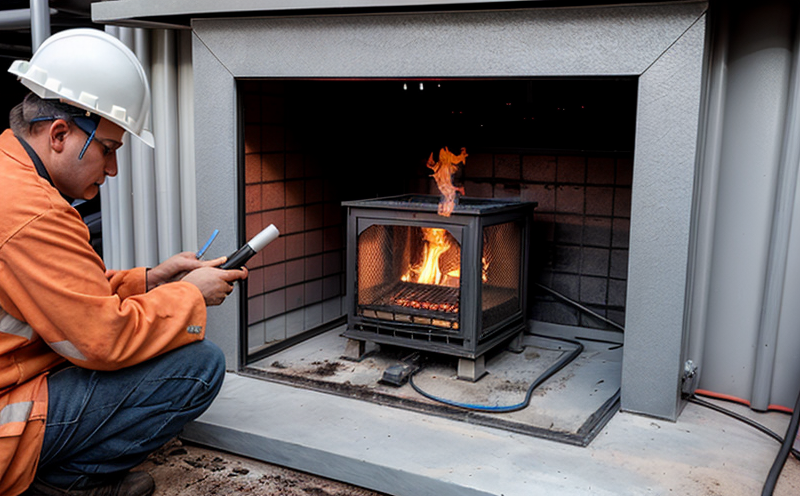Thermal system inspection
The thermal system inspection is a critical process aimed at ensuring that systems designed to manage or interact with heat are operating efficiently and safely. This service is essential for quality managers, compliance officers, R&D engineers, and procurement professionals who need assurance that their equipment meets the highest standards of performance and reliability.
Thermal systems play an integral role in many industrial processes, from power generation and refrigeration to manufacturing and HVAC systems. Ensuring these systems are functioning correctly not only enhances operational efficiency but also minimizes the risk of costly downtime or safety hazards. Our thermal system inspection service provides a comprehensive evaluation of your equipment, ensuring it meets all relevant industry standards.
The process begins with a detailed assessment of the thermal system’s design and installation. This includes evaluating the insulation materials used, the type of heat exchangers employed, and the overall layout of the system. We then proceed to conduct a series of tests that simulate real-world operating conditions. These tests are designed to identify any potential issues before they become critical problems.
Our team of experienced engineers uses advanced instrumentation to measure key performance indicators such as temperature distribution, heat transfer efficiency, and thermal stress levels. This data is crucial for identifying areas where improvements can be made or where there may be underlying defects that need addressing.
The inspection also includes a review of the system’s maintenance history and operational logs. By analyzing this information alongside our findings from the physical tests, we can provide a more holistic view of the thermal system’s health and performance.
Based on these assessments, we will prepare a detailed report outlining all observed issues along with recommended corrective actions. This document serves as both a diagnostic tool for immediate problem resolution and a roadmap for future maintenance strategies aimed at extending the lifecycle of your equipment.
Thermal system inspections are particularly important in industries where even minor discrepancies can lead to significant financial losses or safety risks. Whether you're dealing with large-scale industrial facilities or smaller commercial operations, our expertise ensures that every aspect of your thermal systems is thoroughly examined and optimized for peak performance.
| Standard | Description |
|---|---|
| ISO 89901:2015 | Guidelines for the design and installation of thermal systems in industrial applications. |
| American Society of Mechanical Engineers (ASME) PTC-4 | Standards related to pressure vessel testing, including those used in thermal systems. |
The adherence to these internationally recognized standards guarantees that our inspection processes are rigorous and consistent with global best practices. This consistency ensures reliability across all inspections we perform, regardless of location or scale.
| Aspect | Description |
|---|---|
| Preparation | Involves reviewing existing documentation, conducting a walk-through of the site, and preparing all necessary equipment. |
| Data Collection | This phase includes taking precise measurements using specialized instruments to gather detailed data on thermal properties and system behavior under various conditions. |
| Analysis | The collected data is analyzed against set criteria and compared with industry benchmarks to identify any deviations from expected performance levels. |
| Reporting | A comprehensive report summarizing the findings, recommended actions, and next steps is prepared for your review. |
The thorough nature of our inspections ensures that no detail goes unaddressed. This approach helps maintain high standards of quality control and compliance, which are crucial for maintaining customer trust and regulatory adherence.
Quality and Reliability Assurance
At [Your Company Name], ensuring top-tier quality in all our services is non-negotiable. Our thermal system inspections follow stringent protocols designed to catch even the subtlest deviations from optimal performance early on, thereby preventing costly failures later down the line.
We employ a team of certified professionals who are experts in their field and stay updated with the latest technological advancements in thermal engineering. Their expertise ensures that our inspection processes remain at the cutting edge, adhering to the highest standards set by international bodies like ISO and ASME.
The use of advanced technology and methodologies allows us to provide precise and reliable results every time. Our commitment to excellence extends beyond just conducting inspections; we also offer training programs aimed at educating clients about best practices in thermal system maintenance and management.





